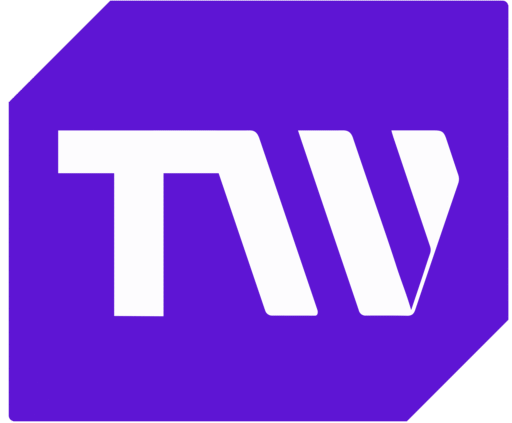SearchGPT: Is the Content Marketing Industry Set for a New Boom?
On October 31st, 2024, OpenAI, the world’s leading voice in artificial intelligence, announced its latest feature: SearchGPT. For many consumers, it was simply something new that would make it easier for them to surf the internet and get information. However, for many professionals in the content marketing industry, like me, the announcement was more thrilling.
I personally felt a wave of excitement, and the words that came to my head were, “Is content about to experience a new boom?” I followed up by sharing the news with my team and some colleagues, and a series of debates followed. It’s still not certain what the new feature holds for consumers and also the trickle-down effect on content professionals, but here’s why it is such a big deal in the first place.
The Rise of Content Marketing
Since the late 90s, the internet has witnessed significant adoption among billions of people worldwide. First, it was a medium to pass information and learn something new. Then, it started to creep more and more into everything we do. It moved from checking the news on your favorite blogs every morning online to spending hours on your favorite social apps and even performing financial transactions. The use cases of the internet became unlimited – and content marketing followed. How did that happen?
Although the internet’s applications have exploded over the years, a major one is how it acts as a global hub for us to share and access information on any desired topic immediately. Looking at my previous sentences, there are two users of the internet’s information edge at a time. Those that want to share information and those that want to access it. Since there are billions of people on both sides, the task of connecting the right pieces together became a big problem and also a more prominent opportunity (see Alphabet Inc.).
Google’s founders Larry Page and Sergey Brin got into the business of connecting those who are looking to access ‘information’ (ask questions) to those who have the most relevant ‘information’ to share (answers). Both men and their companies made a fortune while solving this and also sparked the creation of a new industry of professionals called content marketers. The job description for content marketers was simple -create content (answers) that readers would find valuable and Google would show to them.
The rewards were enormous. When Google loved your content, and readers found it valuable, it’d be shown to more people. This meant increased impressions, traffic, and even leads for website owners, who could be regular people or business owners, and the money undoubtedly followed. As the internet grew in adoption, so did Google’s importance, as well as the need for content marketers, whose role was to research, curate, and refine these answers. Then came ChatGPT and the content crunch.
AI and the Industry Crunch
I’d like to share an interesting experience I noted while doing my research for this piece. Most reports from top publishers, such as HubSpot and Forbes, claim that the content marketing industry is experiencing an uptick. In fact, according to Forbes contributor Katherine Haan, the industry is expected to grow to $600 billion in 2024, marking an ‘uptick’ from previous years.
However, these positive sentiments aren’t shared by many content marketers who have either had to deal with reduced workloads or been fired from their respective jobs. I’ve had many conversations with those affected, and one feedback has been constant: Many of these professionals believe they’re being replaced with AI tools such as OpenAI’s ChatGPT, Google’s Gemini, and many others.
The reason is simple. Open AI launched ChatGPT in November 2022. ChatGPT, an acronym for Chat Generative Pre-Trained Transformer, has many use cases. One that stands out is its ability to give direct answers to long-form questions in a conversational manner—a style that I prefer much better than Google’s ‘matching’ approach.
A screenshot of my result after going on to search “how do I fix my bad iPhone battery” on Google
A screenshot of my result after going on to search “how do I fix my iPhone battery” on ChatGPT
I’ll go on to highlight the difference between both approaches for better clarity. Google’s style is to take my question (query) and then crawl through millions of sites on the Internet. Afterward, it recommends the most relevant sites using its complex algorithm. ChatGPT takes the same query and uses its complex algorithm. However, it doesn’t recommend a list of sites for me. Instead, it provides a straightforward answer, as seen above.
You’ll agree that the second approach is more convenient, as did many other internet users. Just five days after launch, ChatGPT recorded a massive 1 million users and has been growing since then. I’m about to get to the point in case you’re wondering why this is relevant in the first place.
ChatGPT’s new style posed a threat to content marketers in many ways. The most significant one is that it provided ‘direct answers’ to questions right from its ‘chatbox.’ This meant that users did not have to visit websites searching for the best answers to their questions. Hence, there is less need and ultimately less work for content marketers whose job is to ‘develop content’ for these sites. The job market soon followed suit, with many companies laying off a large chunk of the content teams.
What Does the Future Hold for the Industry?
There is no certain description of what the future of the content industry will look like. Although AI tools have awakened a new dawn, and the rate of adoption is increasingly growing, the tools still pose many limitations. Some of these are inaccurate answers to queries, biased responses, and outdated information. Undoubtedly, I expect that these limitations will continue to be addressed over time and AI tools will get better.
Open AI’s SearchGPT also marked a breath of fresh air for content marketers as it had some of the elements that created the demand for their skills in the first place. Users can go on to ChatGPT and ask questions on their favorite topics. As usual, they’ll get a streamlined response straight in the Chatbox, but the journey no longer ends there. Now, they’ll also have an attachment of recommended sites where they can learn more if they want to – once again, bringing content marketers into the equation.
A screenshot of SearchGPT with newly added site recommendations
A screenshot of SearchGPT with newly added site recommendations
Mixed Reactions on SearchGPT’s Launch
As mentioned earlier, SearchGPT’s announcement was followed by mixed reactions. Some of these, I could capture when I shared the news of the launch with some of the professionals in my space.
Dreamchild, a seasoned tech journalist, spoke more about the feature’s use and shared;
“I think searchGPT is just ChatGPT reskinned in terms of use-case. It’s good they now have authorities. At least now they’ll give some of the traffic back. I’d still enter Google to search for where to buy power stations and to find out what the news is. Research, on the other hand… now that’s where this is useful.”
Jude Enosegbe, a Tech Writer, spoke on behalf of site owners who want to have content featured as results for SearchGPT readers. He shared;
“The linked sites are where most of the SEO efforts will be targeting.
First of all, technical optimization will involve allowing SearchGPT bots to crawl your website. Many companies are skeptical about this and are against it for now. But that’s how Google started and still operates, so they’ll come around. Then, of course, writing really in-depth pieces will be crucial to competing for those limited referral spaces.
We may still need to understand a lot about the SearchGPT algorithm and how it works so we can optimize content better for it. Then, I believe, understanding how to position your content headers will be a huge plus. Including TL;DRs, and a general fine content structure will be great. And yes, exclusive and in-depth stories will fly while surface-level content will suffer.”
Meanwhile, searchers’ behavior is changing. They’re searching in other places too–not just Google. I expect SearchGPT to just be one of those places they search. Stats show that they’re also increasingly searching YouTube, TikTok, Reddit, and the like. The future of SEO will be optimizing for all these places where searchers spend their time”
My Predictions and Recommendations
According to a report by Kelsey Libert, who is an 18-year Content Marketing veteran, internet users still rely heavily on traditional means of finding information such as a simple Google look. In fact, Kelsey’s report revealed that 97% of her respondents use search engines regularly and rely on them as a part of their buying journey.
At the same time, adoption of newer media such as ChatGPT, and other social networks were gaining momentum among the younger population. My conclusion here is that the current channels will remain popular among users. However, this will gradually shift towards the use of more advanced technologies such as GPTs that streamline the search process.
So the question remains, ‘Who will rank, and what will be shown to readers in the near future?’ There’s no way to tell yet, and we still have a lot of work to do in understanding these new systems. However, here is my prediction—authority will matter more than ever.
Thanks to the efficient nature of GPTs, accessing, gathering, and creating content will become easier over time. The cost of quality will reduce, and the price of authority will go up. In a world where anyone can create 100s of pages of content in minutes, the real value will shift from what’s in those pages alone to more of the name behind them.
My recommendation is for content marketers to begin working more on building their brand and authority. This will be very important in separating the posers from the real professionals in the future. Content marketers should also focus on niching down and building domain expertise in their preferred industries. There will be less need for surface-level information, since AI tools can easily provide them.


